
Dynamics Days Kagoshima 2025
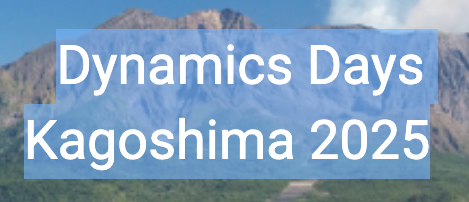
albert | events | 26/11/2025
Thursday, 4 December, 2025
10:00-12:00 Registration / discussion / poster setting
(lunch)
13:40-13:50 Opening
13:50-14:40 Albert Diaz-Guilera (Universitat de Barcelona), TBA
14:45-15:10 Riccardo Muolo (RIKEN & Institute of Science Tokyo), Higher-order phase reduction through parametrization
15:15-15:30 Mircheski Petar (Institute of Science Tokyo), Control of chimera states
(tea)
15:45-16:10 Praful Gagrani (University of Tokyo), Large deviation theory of growing chemical reaction networks
16:15-16:40 Barbieri Ettore (JAMSTEC), Reconstructing Ecological Food Webs from Species Lists Using Large Language Models
16:45-17:25 Shigefumi Hata (Kagoshima University), Synchronization facilitated by frequency differences: Dynamics of coupled-oscillator systems with damaged elements
The Barcelona Past Networks Summer School
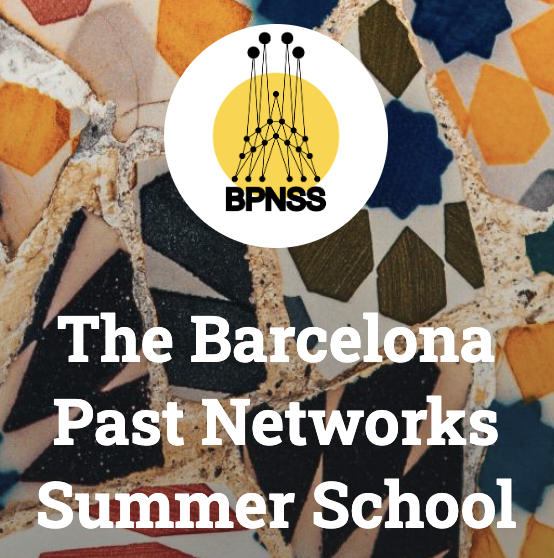
albert | events | 07/07/2025
At a glance
- Annual 4-day summer school in Barcelona (1-4 July 2025)
- Teaching the theory and practice of network research
- For those studying the human past (historians, archaeologists, classicists, …)
- No prior computational skills required, but willingness to learn
Details
Network approaches are commonly used in diverse studies of the human past. For example, analyzing letter correspondence in 16th century England, mapping the similarity of material culture in the prehispanic US Southwest, reconstructing ancient Roman family ties as revealed through funerary inscriptions, and much more. Such research is supported by thriving international communities, conference series, a journal, and textbooks. But dedicated training in the theory and practice of network research is missing in most history and archaeology degree programmes.
The Barcelona Past Networks Summer School addresses this educational gap. It provides an annually recurring opportunity to learn what network research is, how it can be usefully and critically applied to the study of the human past, through hands-on practicals and critical lectures. The content is curated and delivered by leading experts in the field, and the summer school is a joint effort of the main international scholarly communities in past networks research. The summer school is developed for those establishing or developing their studies and research on the human past (archaeologists, historians, classicists, …).
If you aim to perform network research but your own institutional or educational context cannot support you in this specialism, then this summer school is perfect for you. No prior mathematical, computational or coding experience is needed, but a willingness to work with and learn computational and coding approaches is necessary, given the strong practical focus of the summer school.
School on Synchronization: from collective motion to brain dynamics
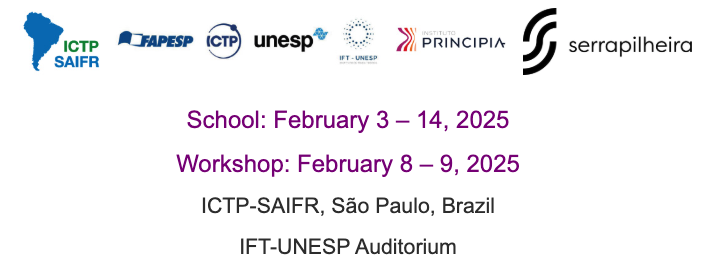
albert | events | 12/02/2025
Synchronization is one of the fundamental phenomena in complex systems and nonlinear dynamics. There are a large number of systems where synchronization is an important effect and we shall focus on two of them:
a) Mobile systems: the emergence of coordinated movement in space and time without an apparent controller.
b) The Janus-faced nature of synchronization in brain dynamics, or how synchronization impairs and drives the brain, and the importance of physics for the prediction of epileptic seizures.
The school will cover:
– A general introduction to synchronization phenomena;
– Systems where spatial and temporal synchronization occur simultaneously, as observed in sperm cells, starfish embryos and swarmalators in general;
– Introduction to epilepsy and seizure dynamics;
– Seizure prediction methods: Modern nonlinear models for the detection and forecasting of dynamical transitions from time series; challenges and opportunities for more efficient data analysis.
The event will also include a workshop on the weekend of February 8-9 covering current research in the field.
This school is part of the Topics in Nonlinear Science: Fundamentals and Applications.
There is no registration fee and limited funds are available for travel and local expenses.
Organizers:
- Marcus Aguiar (UNICAMP, Brazil)
- Hilda A. Cerdeira (IFT-UNESP, Brazil)
- Mario Chavez (Sorbonne University, France)
- Albert Diaz Guilera (Universitat de Barcelona, Spain)
- Klaus Lehnertz (University of Bonn, Germany)
3RD LATIN AMERICAN CONFERENCE ON COMPLEX NETWORKS
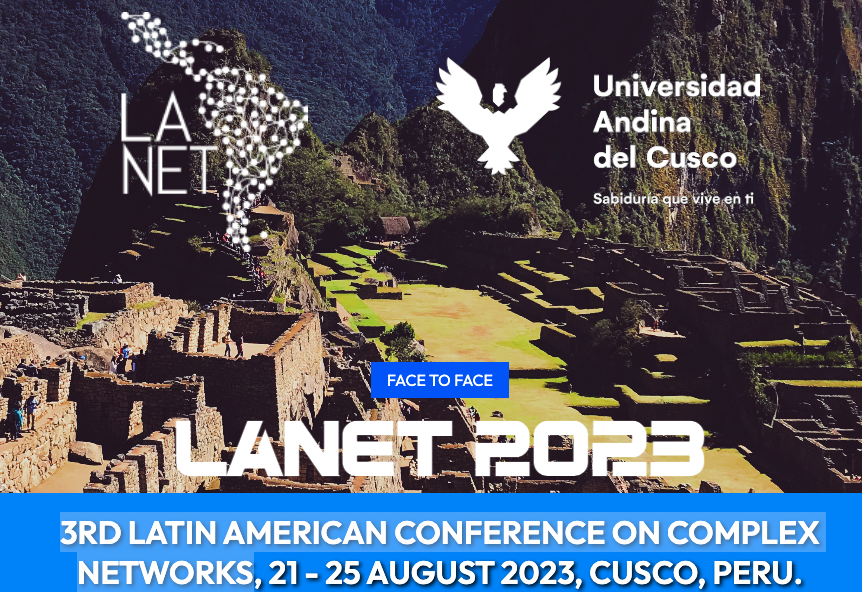
albert | events | 21/08/2023
The aim of LANET is to provide with a forum to join all scientists who are somehow related to the research on Network Science in Ibero America. The rapid growth of the field of Network Science in the last two decades has manifested in the form of schools, workshops and conferences in Ibero America. However, the creation of LANET as a stable and periodic forum devoted to Network Science will further spur the formation of research groups interested in the field and help to establish it as a discipline across Ibero American Universities and Research Institutions.
Bibliometrics application
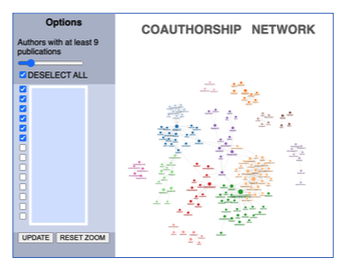
albert | events | 09/01/2023
Wish to see your network of coauthors in scientific publications? Want to have your bibliometrics data at hand? Interested in unveiling collaboration patterns? CLabB (part of @UBICS & @datascienceUB) developed a free an interactive app
Short tutorial available in the web clicking at “About” and here. Two types of queries are available: - File with ORCID codes - Query about Affiliation names (ROR for institutions), Authors (ORCID), ISSN, Keywords, or combinations.
Output is a list of papers fulfilling conditions. Each paper with full bibliographic information, DOI link, citation number & different rankings. The query can be edited, refined and papers with too many authors filtered out.
You can directly get: • CSV file with details • Summary with number of papers, citations, and quartiles (Citescore) • Network of coauthorships. Filter by minimum number of publications and authors
International Conference on Control of Self-Organizing Nonlinear Systems
albert | events | 12/12/2022
The conference addresses fundamental developments in the theoretical understanding of control of complex and self-organizing systems, as well as state-of-the-art applications in various scientific disciplines. In particular, it focuses on nonlinear dynamical systems and networks with time delay and noise, and on applications of control to quantum systems and lasers, soft and active matter, cardiac dynamics and neuroscience.
MultiNet Webinar Series
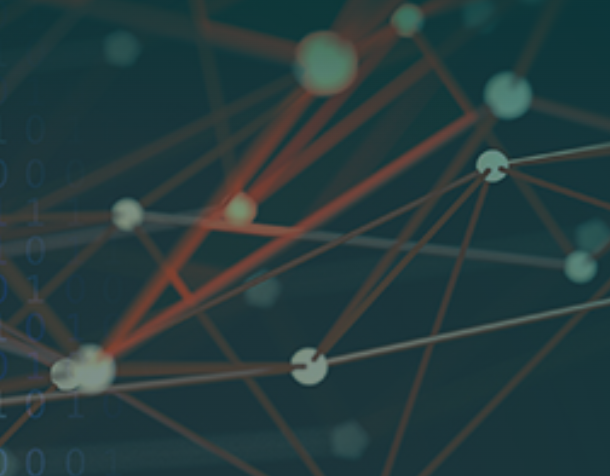
albert | events | 20/09/2022
Dynamics on Multiplex Networks
Albert Diaz-Guilera
University of Barcelona
In this talk I will review some of the contributions of our group on the topic. I will start with the most basic diffusion processes, and finish with the more complex combination of different processes on different layers. Special emphasis will be placed on the spectral aspects of the mathematical description. Examples are taken from Physcis, but also from Social Sciences, Biology or Neuroscience.
Tutorial at Collaborative Research Center 910.
albert | events | 20/07/2022
Part 1: Introduction to Complex Networks
Part 2: Dynamics on Complex Networks
From Networks to Neural Networks in Finance
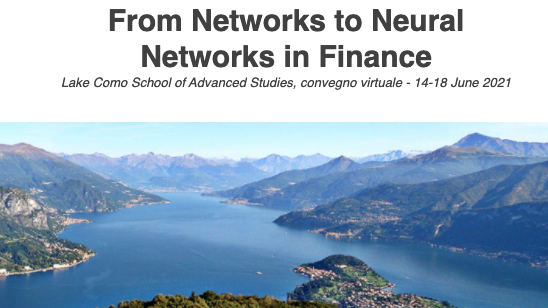
Albert | events | 13/12/2020
The School aims to present the state of the art on methodologies and applications of Neural Networks and Nets to finance. The expected audience of the school is provided by PhD student and young researchers interested in applications of Neural Networks and Nets to finance.
Program
The school is organized through three different initiatives:
- Four minicourses
- Lectures
- Workshops with students and participants to the school on developing research ideas.
Minicourses:
- Albert Diaz Guilera, Universitat de Barcelona (10 hours):
- Tomaso Aste UCL, London (6 hours): Information filtering networks for socio-economic systems
- Matteo Matteucci, Politecnico di Mialno (10 hours): Introduction to neural networks: from theory to practice
- Josef Teichmann, ETH Zurich (6 hours) (TBC)
Lectures:
- Christoffer Kok, European Central Bank, Contagion modelling at the ECB: analytical frameworks and policy usage
- Paolo Giudici, Università di Pavia, Network based credit risk models for peer to peer lending.
- Andrea Prampolini, Intesa Sanpaolo, Limit order book simulation with interactive agents
Workshops:
to be defined
Complexity Science and Past Complex Systems
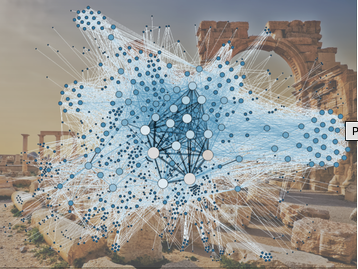
Albert | events | 18/11/2019
How can complexity science help us better understand past and present complex social systems as diverse as the Roman economy and online social networks? This one-day workshop will explore the role complexity science, and in particular its use of network approaches, can play for the study of the human past, and how it enables comparisons between past and present-day complex social systems.
Complexity science is now a thriving field and its application for the study of the human past shows huge potential. This workshop will explore this potential.


